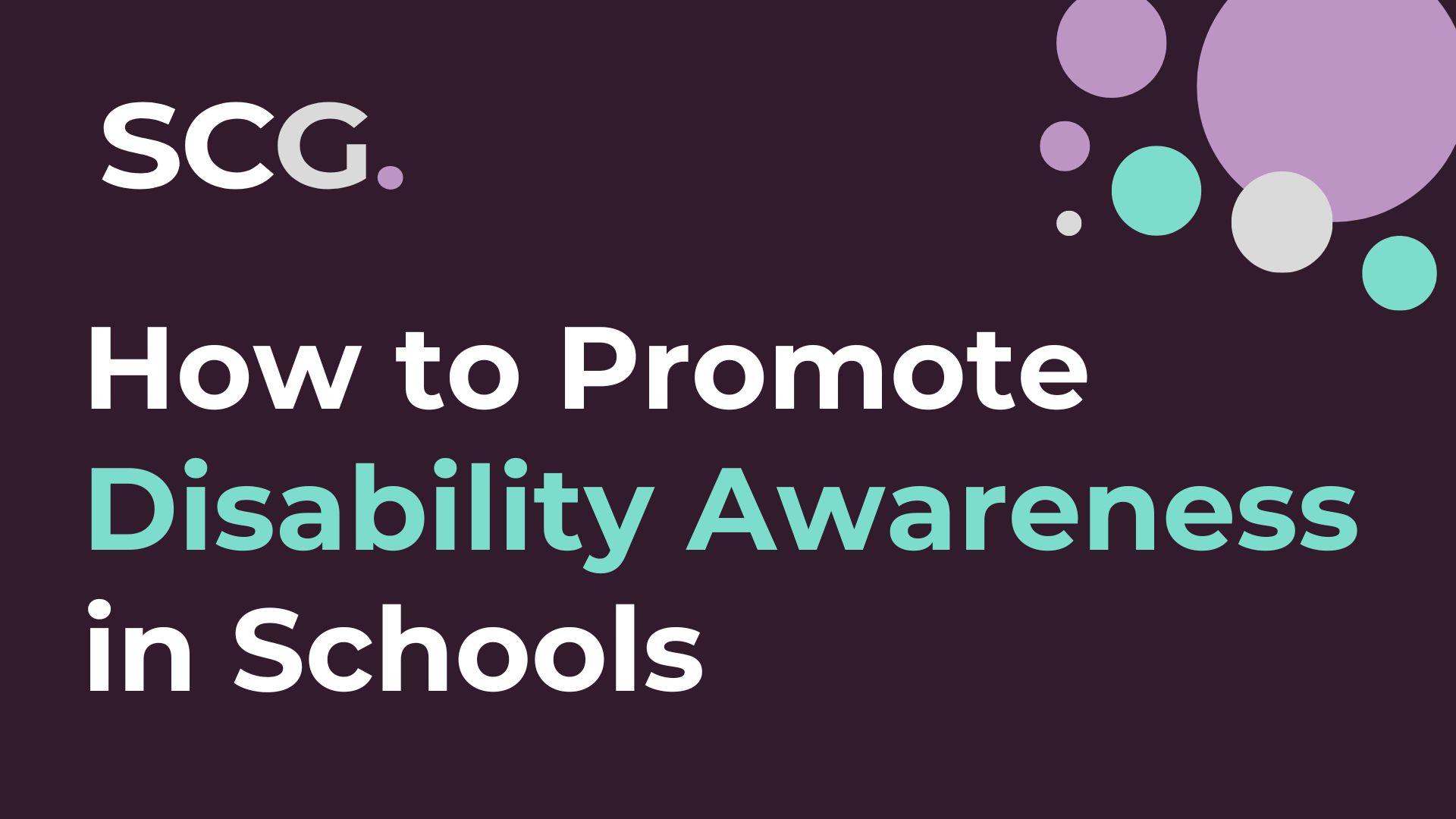
Common Safeguarding Interview Questions and Answers
20 Sept, 20231-2 minutes
In this blog, you will learn
- What safeguarding is.
- Questions you could get asked about safeguarding in your job interview.
- What the hiring manager may be looking for in your answers.
- Where the latest Education and SEND jobs are and how to apply for them.
If you have an interview for a job in a school or educational setting, regardless of the position, you should be prepared to answer some safeguarding questions and have an understanding of child protection principles.
What is safeguarding?
Safeguarding is guaranteed to feature in any interview for a job role that involves children, young people, or dealing with potentially vulnerable people.
Safeguarding means protecting people’s human rights, health and general wellbeing, preventing neglect, harm or abuse. It is a major responsibility in roles such as healthcare, social care, child care, education, nonprofits and working with the disabled or in care homes for the elderly.
Safeguarding is critically important and crucial for organisations that deal with children, adolescents and people with Special Educational Needs and Disabilities (SEND).
The Children Act 1989 provides the legislative framework for child protection in England for all children, including those with SEND.
Under Section 17 of the Children Act 1989, local authorities in England must safeguard and promote the welfare of children in need. It explains the duties of local authorities, health bodies, schools and colleges to provide for those with special educational needs under part 3 of the Children and Families Act 2014.
The code, which applies to England, is for:
- Headteachers.
- Governing bodies.
- School and college staff.
- Special Educational Needs (SEN) Coordinators.
- Early education providers.
- Local authorities.
- Health and social services staff.
Discover common safeguarding interview questions and answers to help you showcase your knowledge and qualifications in safeguarding practices to ensure you are well-prepared and confident during the interview process.
9 most common safeguarding interview questions and answers
Why do you want to work with children?
The purpose of this question is to understand how much an applicant enjoys caring for children and if they have any experiences that have prompted their decision to work with children. Any role involving children takes patience and precaution, and the hiring manager wants to make sure you are a passionate, suitable applicant for the job.
How to answer this question
In your response, demonstrate your career goals and passions and the skills you possess that match those required to work with children. Your answer should include what motivates you, mention rewarding moments or the potential to make change. Let your comments show that you see children as individuals and you strive to make a difference for each one.
What experience do you have working with children?
This question helps them determine if you have enthusiasm for the work and the ability to connect with children. The interviewer can read your CV but they want to hear from you why you enjoy working with children as well as defining your professional experience. They want to know what you have learnt from your experience and the things you enjoyed or excelled at.
How to answer this question
In your response, mention your career and education history and how they have both prepared you for a role in education to perform your duties and responsibilities effectively. Share what you enjoy about working with children in addition to defining your professional experience, provide detailed descriptions of the specific work you have done. Mention things you can continue to offer and demonstrate how you are skilled and experienced to do it.
In your response, mention your career and education history and how they have both prepared you for a role in education to perform your duties and responsibilities effectively.
What's your approach to safeguarding children at work?
The interviewer would ask you this question to gain insight into your knowledge and understanding of safeguarding as a responsibility. Your response would allow them to assess your knowledge of safeguarding and ensure you are aware of its importance.
How to answer this question
In your answer, you must demonstrate your knowledge of safeguarding children and what approach you would take. Emphasise the skills you would use such as listening to the needs of the children, and taking the time to evaluate the importance of keeping the environment safe for them.
Your answer should mention the fact that safeguarding policies vary significantly - therefore you would have to review the safeguarding procedures to guarantee the safety of the vulnerable groups. Mention the steps you would take and the importance of evaluating and remaining balanced.
Give a concise response that will show the interviewer that you are able to handle a relatively broad question, focusing your answer on prioritising the requirements of children or other vulnerable people.
What do you think are some challenges facing school staff today?
The hiring manager might ask this to gain an understanding of your ability to research and keep up to date with current issues and challenges facing schools today. This question is designed to demonstrate your priorities and some of the issues you may have faced in your career and allow you to openly discuss and explore them.
This question aims to assess your awareness of potential challenges that educators might face when teaching students with diverse needs and your ability to provide effective training to address those challenges.
How to answer this question
In your answer, showcase your knowledge and experience identifying and addressing challenges and examples of how you have used your analytical skills and creativity to resolve issues. You should explain how you'd work with staff to identify needs and then offer the appropriate support and training.
Some of the challenges facing staff in education today:
- Time management - school staff are struggling to do paperwork and more as well as teach and ensure children’s needs are met.
- Student learning preferences and difficulties - this is a major issue for EHCP Coordinators and Educational Psychologists.
- Lack of funding - unable to use financial resources to invest in learning materials.
- Bullying - it is important that a child’s safety, wellbeing and behaviour is monitored.
- Disciplining students - using positive, disciplining strategies that are fair and consistent.
- School administration's standards for Teachers - Pressure for Teachers to regularly engage in professional training and improve their qualifications.
What do you think are some of the challenges facing children in education today?
This question evaluates your ability to research the industry to discover some of the common challenges that children are facing or if your experience has brought attention to any issues or challenges.
Being aware of the challenges facing children in education today is a good way to prove your experience and things to look out for when it comes to safeguarding.
How to answer this question
In your answer, you should demonstrate your knowledge and experience by providing solutions or ideas to prevent or address challenges, including:
- Accessibility for special needs.
- Empathy, understanding and communication from others.
- Student family problems - education staff need to be aware of issues at home that would affect the child’s welfare or learning. Problems at home include parents’ relationship, sibling issues, abuse or neglect, a housing problem or simply feeling unsupported.
- Returning to school after having time away to look after your mental or physical health.
- Going to school with anxiety, depression, OCD or any other mental health condition.
What would you do if you were concerned about a child’s behaviour?
This question is important to show the interviewer that you take any unusual behaviour seriously from a child or vulnerable person. They want you to acknowledge that changes in behaviour is significant or could be worrying, otherwise they wouldn't ask it.
All staff should be aware of their local early help process and understand their role in it. The hiring manager wants to know that you have relevant skills and knowledge to safeguard children effectively.
How to answer this question
In your answer, talk the interviewer through your process or line of action, from the first sign of change in their behaviour to officially reporting or coming to a conclusion. First line of action would be to take the time to speak with the child to find out if there are any problems, issues or information you find.
This could be problems at home or school with bullies, friends or family, and could be regarding their physical or mental health, wellbeing or their education.
Demonstrate your knowledge of the expectations and responsibilities of safeguarding and child protection training.
How do you recognise a safeguarding issue?
The aim of this question is to ensure that you are aware of the importance of being able to recognise the signs of abuse or distress in children. The hiring manager might ask about your skills in observation, vigilance and your ability to be attentive and sensitive.
Safeguarding is a challenging subject that requires you to remain responsible and take the correct course of action to ensure the safety of children. The interviewer wants to know if you understand how to provide help to a child or young person..
How to answer this question
Your answer will reveal how you behave under pressure and how you would take action such as monitoring signs and reviewing them regularly to identify a potential safeguarding issue.
You must demonstrate a balanced understanding and respect for the circumstances and for safeguarding issues. Your answers should emphasise the importance of taking the time to assess the situation to ensure you are confident in your observation.
What makes a school a safe and caring place?
Safety is paramount when it comes to caring for children and creating secure environments conducive to learning is essential. This question is designed to assess your priorities, values and expectations regarding school safety to see if they align with their own.
How to answer this question
In your answer, describe how you would ensure the environment is safe for children and some of the steps you would take to ensure it is done effectively. Demonstrate how you would strive to ensure that even the basic requirements are in place such as emergency procedures checking for potential hazards or risks, but also that behaviour towards children are at the forefront.
What have you done in the past 12 months to improve child protection in the workplace?
This question aims to understand your progress and experience and evaluate your ability to be creative and innovative. The hiring manager wants to understand how you have actively contributed to your work environment in the past, to determine whether or not you can bring those commitment and collaboration skills to your new job.
The hiring manager expects you to be able to provide example ideas, strategies that have been successful to analyse your contribution to the overall progress of students with special needs.
How to answer this question
In your answer, provide examples of strategies or policies that have been successful or improved child protection in the workplace. The hiring manager will be looking for your ability to provide examples of the practices you have helped enforce and the impact they have had.
Improvements you can suggest:
- Reviewing your safeguarding policy for any cracks in the system or opportunities for improvement.
- Make sure staff are familiar with safeguarding policy and aware of any changes or opportunities for improvement.
- Carry out safeguarding training.
- Remind staff what to do if they have a safeguarding concern.
- If your organisation doesn’t yet have a safeguarding policy in place, offer to write one.
For more career advice and tips check out our guide on how to prepare your CV for a teaching job.
Find your next SEND job
Searching for your next temporary, interim or permanent SEND job? Simply upload your CV or get in touch with our Divisional Manager and SEND recruitment specialist Richard Shorrock who will be happy to offer you more details and assistance throughout your job search.
Who is Spencer Clarke Group?
Based in the North West, our education and SEND recruitment agency is committed to providing the best SEND recruitment service to schools and local authorities.
Since 2017 we’ve been reshaping and innovating the recruitment agency and effecting positive change.
We operate in two sectors:
In eleven specialisms:
• Construction, Trades & Labour
• Health, Social Care & Nursing
• Housing
• Corporate Functions & Business Support



